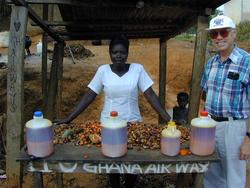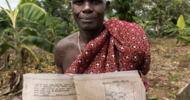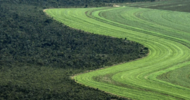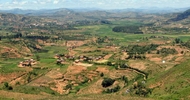Commodity Online | 30 April 2011
AHMEDABAD (Commodity Online) : Southeast Asian palm oil firms like Malaysia's Sime Darby and Singapore's Golden Agri Resources are backpacking to Africa, in what could be the planet’s next trend-setter in inter-continental resource trade.
Oil Palm cultivation requires huge tracts of land and back in their home countries, the said firms are running out of land. Meanwhile, world demand for cheap cooking oil is soaring; so are the prices of these commodities. A USDA report says that the world would face 246,000 tons in supply shortage of palm oil in the current marketing year to September.
Ample business opportunity translates into a rush for the land often cheated by the associated risks: hostile climate in Africa, huge costs, land disputes and political turmoil.
But the firms are having nil alternatives, if they want to goad on growth. Their growth in home countries would be restricted by strict environmental laws by the time it is 2020-2022. Indonesia is contemplating a law that would effect a ban in forest clearing. Malaysia would soon experience a shortage for land. And together, these countries account for 85% of global palm oil output.
But the promise of Africa is too tempting to miss.
The Sub-Saharan Africa is having 201.5 million hectares of potential land suitable for crops; this is 16 times the total oil palm acreage in Indonesia and Malaysia, according to World Bank. If 1 million hectares of land is utilized on an annual basis for over two decades output could be to the tune of 38 million tons from 1.9 million tons in 2010; FAO statistics say.
This means Africa can turnout to be a net exporter from its current status as an importer of palm oil at 3 million tons in 2010.
Take a look at the deals:
Liberia-based Golden Veroleum has signed a deal worth $1.6 billion with the government of Liberia for a 500,000 acre estate grab and Golden Agri Resources, Singapore's second largest palm oil firm, plans to invest in the company.
But production cost can be a deterrent. For instance, mapping of land rights can incur huge expenses, adding to production costs that range between $600 and $800 for a ton of palm oil in Africa. This is when compared to around $300 in Asia, according to a Reuters survey.
Labour may be cheap in Africa, but availability of skilled laborers is an issue. Climate is also a factor.
Long spells of dryness in Nigeria can play spoilsport for instance.
Still, there is hope:
The World Bank Group On April beginning, announced the lifting of moratorium on its new investments in the palm oil sector and adopted a World Bank Group Framework and IFC Strategy to guide future engagement in the global palm oil sector.
The new framework and strategy were developed following extensive consultations with a wide range of stakeholders including environmental and social NGOs, farmers, indigenous communities, private sector companies, and governments.
Feedback received affirmed that, when guided by rigorous environmental and social protections, the palm oil sector can be an important contributor to growth and economic development and to overcoming poverty.
FELDA Global Group, the world’s largest oil palm estate operator wants to replicate its home grown model of small hold cooperatives in Africa and help the Africans learn a trade in exchange of steady palm oil supplies.
A slew of global firms are snapping up large chunks of land in Africa to meet food, farming demands back home or in other countries.
For instance there were reports in January that, with current rubber plantations in India maturing or getting old, Harrisons Malayalam, India’s largest rubber plantation and top producer of natural rubber is scouting Ethiopia, Cameroon and Ghana for acquiring fresh plantations.
The idea of farm land outsourcing is not new, given the fact that many major cash-rich economies have started this long before. Over 20 million hectares of land has already been sold, globally.
China, Saudi Arabia, and South Korea top the charts on this account. Japan, a big player, has acquired lands in foreign countries thrice the size of its domestic farm fields!
The rise in food prices experienced by the markets from 2007-08 has added to this shopping frenzy.
(With data inputs from Reuters)
Oil-palm land resource rush slippery in Africa?
- Tags: Golden Agri Resources | Liberia | Malaysia | Sime Darby | Singapore | World Bank
-
 Commodity Online
Commodity Online
- 30 April 2011
Who's involved?
Whos Involved?
Carbon land deals
Dataset on land deals for carbon plantations
07 Oct 2025 - Cape Town
Land, life and society: International conference on the road to ICARRD+20
Languages
- Amharic
- Bahasa Indonesia
- Català
- Dansk
- Deutsch
- English
- Español
- français
- Italiano
- Kurdish
- Malagasy
- Nederlands
- Português
- Suomi
- Svenska
- Türkçe
- العربي
- 日本語
Special content
Archives
Latest posts
-

Here’s how this fundie is making money from the land
- AFR
- 02 June 2025













